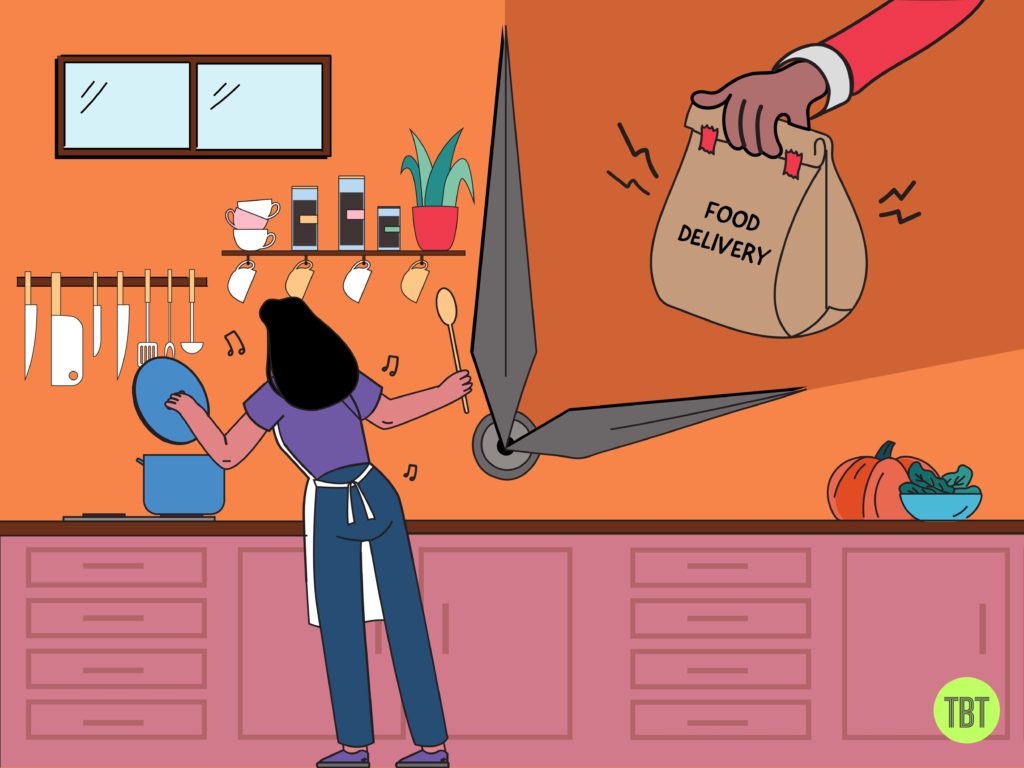Why is cancer hard to beat? Is ice cream secretly good for you?
The most trustworthy source of food and
fitness journalism in the country.
Editor’s note: Hello there, Samarth Bansal here! We are back with our curated edition where we share our favourite health content from outside the TBT universe.
Have you ever questioned the societal narratives around weight loss and surgery? Is ice cream secretly being left out of health conversations? Why is cancer such a relentless adversary for your immune system? Can you be a ‘good enough’ home cook without culinary school? What’s the barrier to making strength training a habit?
Five things. Happy reading, listening, watching!
One: What I learned losing 70 pounds
I loved journalist Matthew Yglesias’ insightful take on obesity, his experience with weight loss surgery, and food. These are touchy issues, so I really appreciate Matt opening up and sharing his personal struggles.
He explains why he chose surgery and why “eat less, move more” didn’t work for him—without preaching what everyone should do. It’s just his experience, plus some broad lessons and commentary on society at large.
Here are three snippets from the piece:
First, Yglesias doesn’t suggest that medical interventions like bariatric surgery or GLP-1 agonist medications (such as Ozempic, which we discussed last week) serve as a substitute for diet and exercise. Instead, he explains:
“What happened is that I was systematically eating much less food than I did before the surgery…The point isn’t that lifestyle changes don’t require a super-genius — it’s that thanks to the surgery, the changes were easy to adopt…If you don’t struggle with your weight, this is probably hard to empathize with, but those who do struggle generally understand that it’s easy to know intellectually what you should do, but nearly impossible to actually do it. Yet suddenly, it was easy.”

“Eat less, move more” isn’t the only way to weight loss
Second, this bit on doctors is so true:
“One thing that really resonates with me is the experience of being a fat person who suffers from some specific medical ailment and wants medical advice about that ailment, but instead receives a lecture about how it would help to lose weight.
This is not helpful advice, because it’s not always medically relevant and when it is, most people don’t have a good option to lose weight. But the knowledge that this is what doctors are going to talk to you about sometimes makes you want to avoid seeing a doctor. That makes your health problems worse.”
Third, Daniel Lieberman’s framing of the problem as an “evolutionary mismatch”:
“For hundreds of thousands of years, people lived in circumstances where starvation and malnutrition were very real threats to survival and the ability to reproduce. So the fit and healthy way to live was to be like me — broadly omnivorous, curious about trying new foods, and generally inclined to eat plenty of food when food is available. Storing and preserving food is challenging, but most humans are very good at storing extra food on the body to give you a buffer in lean times.
But in modern society, people very rarely face genuine lean times — contemporary Americans spend a dramatically lower share of our income on food than we did a couple of generations ago, to say nothing of pre-industrial or pre-agricultural people.”
Some of you may take issue with some of Yglesias’ points: some may say that weight loss primarily boils down to willpower, some may say his criticism of fat activism is unfounded. There will always be different takes.
But let’s face it: the internet is awash with feel-good weight-loss stories that offer little in the way of actionable insight. Yglesias’ piece stands out for its depth, and I strongly recommend giving it a read. Approaching it with an open mind may, at the very least, deepen your empathy for those grappling with weight issues.
Two: A diet conspiracy: Is ice cream secretly good for you?
This is a wild story. Honestly, I don’t feel comfortable summarising it for you—you either skip it, or if you’re intrigued, read the full article. Seriously.
Here’s the premise: For years, scientists have been studying the health effects of dairy. Interestingly, they’ve found that consuming yoghurt and ice cream seems to be linked with a reduction in diabetes. But when it comes to publicising these findings, they repeatedly mention only yoghurt, completely omitting ice cream. Again and again. What’s going on?
In essence, this is a tale about how diet science operates, spotlighting the role of bias and subjective judgement in scientific discovery. While the story didn’t convince me to up my ice cream intake, it has made me more sceptical about the outcomes of nutrition science and has unquestionably made my role as an editor more challenging.
The article is behind a paywall, but I’m attaching a PDF link here for you (please, don’t circulate it). Alternatively, if you prefer audio, there’s a podcast episode where the author, David Merritt Johns, discusses the article with Derek Thompson. You can listen to it here.
🍨 Let’s all scream for ice cream
Three : The reason why cancer is so hard to beat
One of the most tragic trends I’ve noticed among my family and friends is the rise in cancer diagnoses. The frequency is somewhat alarming, and it’s prompted me to seek greater understanding. This video by Kurzgesagt, one of my favourite YouTube channels, offers perhaps the clearest visual explanation of what occurs within the body when it’s fighting cancer.
The video simplifies the concept of cancer immunoediting, making it incredibly accessible and engaging.
As detailed in their source notes page, cancer immunoediting is a framework that describes the interactions between the immune system and developing cancer cells. The framework comprises three phases: elimination (where the immune system destroys transformed cells that aren’t yet cancerous), equilibrium (where a few cells that evaded elimination are edited by the immune system), and escape (where cancer cells proliferate, establish a tumour microenvironment, and become clinically visible).
Yeah. This may sound like Greek—so just watch the video.
Four: How to be a good-enough home cook
I live solo, and often get asked: how do you manage food? When I reveal that I cook for myself, people lavish me with undue praise.
Why? Because I’m a man, and somehow, a single guy cooking for himself is seen as an achievement. Bizarre. But I’m a sucker for compliments—the whole truth—so I just lap them up. (Why wouldn’t I?)
Do I enjoy cooking? How skilled am I? What dishes can I make?
Well, it’s complicated. The joy I derive from cooking is contingent on time. Ask me on a particular day, and it could be either my therapeutic self-care ritual or a dreary task I wish someone else would handle for me. Creating anything is fun, and cooking feels empowering, but let’s face it, life sometimes takes over, compelling me to eat out even when I’d rather not.

Tried meal-planning to cook at home?
I’m convinced that the surest path to long-term health is fuelling yourself with healthy, homemade meals. Which is why I found this Vox article so helpful.
The point is, as Allie Volpe writes here, with a “few foundational skills and pantry staples, even the most beginner home chefs can whip up some delicious meals in no time at all.”
She shares some excellent advice. Do give it a read. Especially if you are a beginner.
Five: A low-pressure guide to make strength training a habit
I bet you’ve noticed: every second or third Truth Be Told article sings the praises of strength training as essential for a healthy life. The health merits of muscle-building are a recurring theme—no matter your age. You’re already clued in.
However, knowing something intellectually often doesn’t translate into action. Many of my friends are great at lacing up for a run but shy away when it comes to lifting weights.
For the New York Times, Danielle Friedman asked exercise psychologists, scientists, trainers and muscle evangelists for their advice on getting on a lasting strength-training routine.
If time is your enemy, the article concludes with a recommended 20-minute starter workout. It lists seven fundamental exercises, and the only gear you need is your own body and a resistance band. Maybe start there.
That’s it for today. Hope this edition broadens your understanding and sparks some healthy curiosity. What did you find most fascinating? Write to me 🙂 Until next time!
Start your strength training now. Carry this article to your friends inbox😝
More on Truth be Told
An interview with ‘The Bournvita Guy’, Revant Himmatsingka
8 tips to choose the right cooking oil
A beginner’s guide to millets
A masterclass on managing caffeine: How much coffee is too much?
Are blue-light glasses effective?
Are artificial sweeteners healthier than sugar?
Does refrigeration kill nutrition?
